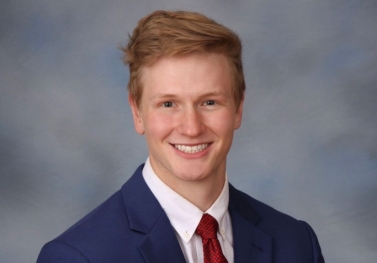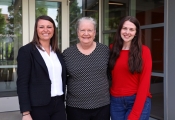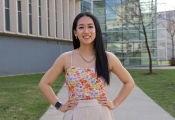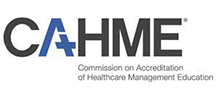Undergaduate student Kaitlyn Jones presented her research on health disparities faced by black women at the APHA Annual Meeting in San Diego.
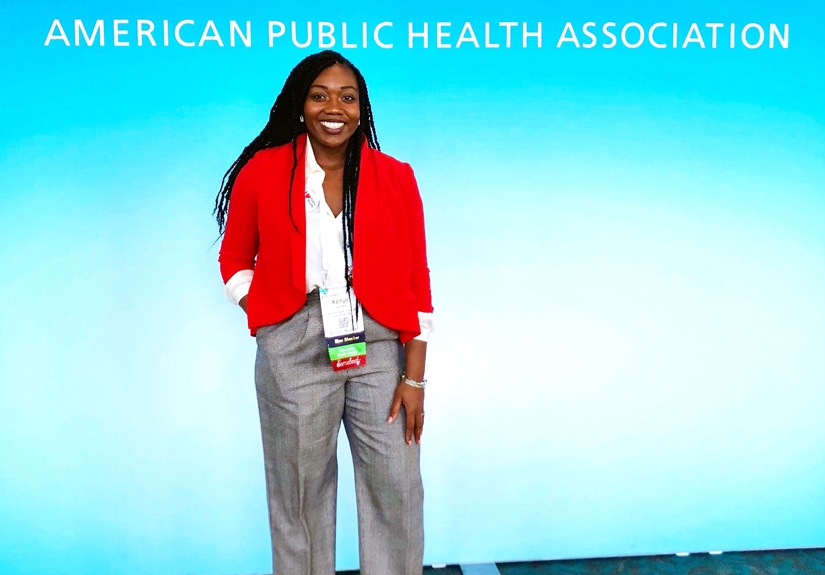
Third-year BSPH student Kaitlyn Jones
Third-year Bachelor of Science in Public Health student Kaitlyn Jones presented a poster at the 2018 American Public Health Association's Annual Meeting and Expo, the largest annual gathering of public health professionals, on Sunday. Over 12,000 people attended and presented research at the event with the theme "Creating the Healthiest Nation: Health Equity Now.”
Through funds obtained from her completion of the Second-year Transformational Experience Program (STEP) at The Ohio State University, Jones was able to attend the San Diego conference in-person to present her research on using the #BlackGirlMagic platform to encourage education and solutions to health disparities that black women face.
“The #BlackGirlMagic platform uses powerful rhetoric and activism to promote self-confidence, self-worth and empowerment in black females,” Jones said. “So far, this overall movement has set goals for African American women to rise above and beyond the daily expectations and obstacles of being a double-burden within society. However, in order for this platform to reach its full potential and acknowledge African American women at their greatest, the level of health awareness, care and prevention for black women must increase to change our current low standings for health today."
After being inspired by a health promotion and behavior class at the College of Public Health, Jones decided to research adverse preterm birth outcomes for African American women. But after doing some research, she began looking at health outcomes for black women as a whole and found that black women are highly susceptible to diseases and illnesses such as diabetes, premature birth rates, breast cancer and lower life expectancy.
“Giving personalized intervention in a variety of platforms for all ages are needed for black women in the most practical and beneficial way for the overall improvement women of today and tomorrow,” Jones said.
Jones hopes her research will make a difference in her local community.
“Someone has to speak for the unspoken,” Jones said. “We go to school at one of the greatest universities in the country and people don't take advantage of the research opportunities. We tend to forget that everyone doesn't have access to the education and knowledge to understand why things are the way they are in society.”
“When you are given the gift of education and the opportunity to expand yourself, you have to use it. You have to be the one that stands up and says, 'I'm not just to let this happen, I'm going to do something about it.' Whether it’s small, like just being a volunteer in your community, or whether it’s big, like rewriting policy, all actions somehow make a difference.”
The abstract for Jones's research is entitled "Inclusion of health status to 'Black Girl Magic' movement: An innovative method to improve and transition the future health and wellness of African American women".

